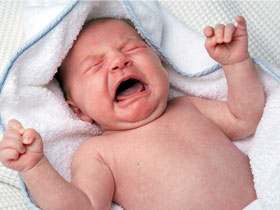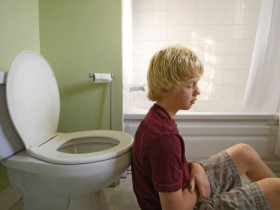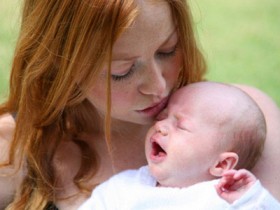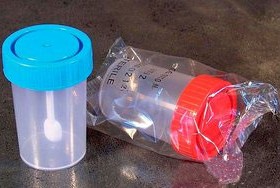The main symptoms of intestinal dysbiosis in children

Every mother wonders, how to identify the disease and what signs of dysbiosis children should pay attention. After all, for anybody not a secret, that timely treatment disease, this is the fastest way to solve problems and recovery.
If you violate the quality of the composition of the microflora, as well as its quantity, usually, baby restless behavior, disturbed sleep due to spasms of the intestine, which are very painful and have paroxysmal in nature. Often, they appear, after 1,5 – 2 hour after feeding the baby.
Basically pain in a child accompanied by bloating, rumbling and flatulence. It is also noted regurgitation, and sometimes vomiting.
In especially difficult cases, there are more severe symptoms, namely diarrhea - frothy stool, whose characteristic putrid smell and acidic, and deceleration in weight gain. These symptoms of dysbiosis in children indicate the development of malabsorption syndrome - malabsorption in the small intestine of nutrients. It is worth noting, what, usually, This syndrome develops in the body of the child in distress: prematurity, malnutrition, receiving antibiotics, as well as intestinal infections.
Quite often, many children in the background diseases develop constipation, as the normal amount of bifidobacteria, which must be produced in the required number of, to stimulate the contractile activity of the intestine, There are no.
By degrees course of the disease distinguish compensated and uncompensated dysbiosis.
With the development of the compensated type of disease symptoms There are no. The child feels good, and to identify breach of microflora is only possible after passing stool analysis, which the, usually, rent for other reasons. But all of the above symptoms of dysbiosis in children are typical for the type of uncompensated.
What are the causes dysbiosis in children?
Initially, the child's intestines sterile and settlement occurs, when it passes through the birth of his mother's ways. Getting to the outside world, baby immediately "get acquainted" at the same time with a large number of bacteria, which live in the air delivery room, as well as on the hands, Clothes, medical personnel and the mother's body.
Causes of dysbiosis in children are completely different, of which is allocated:
- receiving antibiotics;
- after attachment of the newborn to the breast;
- abrupt weaning;
- lack of breastfeeding;
- diatyez;
- intolerance to milk protein;
- hypoxic-ischemic injury of the central nervous system of the child.
It is worth noting, that older children causes of dysbiosis may be linked:
- a poor diet;
- taking antibiotics, cytostatics and hormones;
- stress;
- bad environment in the locations.
What are treated with intestinal dysbiosis in children

Usually, treatment of any disease must be complex, also fared and dysbiosis. Parents need to be reserved by patience weight, as the disease is to wear long-term nature. Supplementation should be careful.
In the first stage of treatment reduce the amount of or completely get rid of harmful microorganisms, who inhabited the intestines of the child. For these purposes apply specific bacteriophages and intestinal antiseptics.
In more severe cases, treatment of dysbiosis in children is carried out with the use of antibiotics in combination with sorbent, binding and outputting bacteria. In order to facilitate the digestion of food and absorption of the child are also appointed by the enzyme preparations.
After that, as the intestines freed of harmful microorganisms by a plurality of, ego zaselyayut bifidobacteria and laktobakterii, who are members of the normal flora. There are special drugs to accelerate and facilitate the process of, performing the functions of normal microflora, and thus create the most favorable conditions for the growth of beneficial microorganisms. true, here it is not necessary to experiment and are best left to the selection of the desired drug doctor.
The necessary tests for bacteria overgrowth in children
For, that diagnose disorders in the intestinal microflora is necessary to pass the fecal bacteria overgrowth, which will help determine the ratio of normal and conditionally pathogenic microorganisms in the gut. Tests of dysbacteriosis in children provide an opportunity to assess the sensitivity of the microorganisms, that inhabit the intestine, which further makes it possible to determine the correct method of treatment and pick up the drugs.
List of necessary analyzes to determine the dysbiosis in children:
- fecal bacteria overgrowth sowing. Requires morning cal, weight 5-10 grams. note, that the material for research stored at room temperature for a long time is not recommended, since neither will be possible to accurately determine the microflora;
- coprogram - a way, which allows you to identify, what degree of intestinal digestion of food, as well as whether there are signs of inflammation. Donating analysis can be and evening, provided, that prior to its delivery to the laboratory it will be stored on the bottom shelf of the refrigerator;
- determination of the amount of carbohydrates in feces.









Leave a Reply